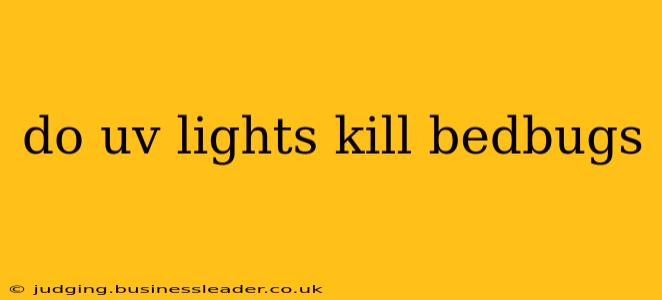Do UV Lights Kill Bed Bugs? A Comprehensive Look at UV Light and Bed Bug Control
Bed bugs are a persistent and frustrating pest, known for their ability to infest homes and cause significant discomfort. While many methods exist for bed bug control, the question of whether UV lights effectively kill them is a common one. The short answer is: UV lights alone are not a reliable method for eliminating bed bugs. While UV light can kill some microorganisms, its effectiveness against bed bugs is limited and should not be considered a primary or standalone treatment.
This article will explore the limitations of UV light in bed bug extermination, delve into why it's insufficient, and highlight more effective strategies for bed bug control.
How Effective Are UV Lights Against Bed Bugs?
UV light, particularly in the UVC range, is known for its germicidal properties, effectively killing bacteria and viruses. However, the same principle doesn't translate effectively to bed bugs. While UV light can kill bed bugs under specific, highly controlled conditions (i.e., direct, prolonged exposure), it’s incredibly difficult to achieve this level of exposure in a real-world infestation scenario. Bed bugs often hide in crevices and cracks, making them difficult to reach with UV light. Even if exposed, they may not receive a lethal dose.
Furthermore, UV light doesn't kill bed bug eggs, which are incredibly resilient. Effective bed bug control requires a multi-pronged approach targeting both adults and eggs.
Why UV Lights Aren't a Standalone Solution for Bed Bugs?
Several factors contribute to the ineffectiveness of UV lights as a primary method for bed bug control:
- Limited penetration: UV light doesn't penetrate deeply into materials like mattresses, furniture, or walls, where bed bugs often hide.
- Uneven exposure: Achieving uniform and sufficient exposure to kill all bed bugs in an infested area is practically impossible using UV lights alone. Many will remain unaffected.
- Egg survival: UV light is not effective against bed bug eggs, which are resistant to various treatments. A treatment only killing adult bed bugs will leave future generations to thrive.
- Lack of residual effect: Unlike insecticides, UV light doesn't leave a residual effect, meaning it doesn't prevent future infestations.
What are More Effective Methods for Bed Bug Control?
Effective bed bug control requires a comprehensive strategy, often involving a combination of methods:
- Professional pest control: Professional pest control services have the expertise, equipment, and insecticides to effectively treat bed bug infestations. They can identify hiding places, apply appropriate treatments, and monitor for re-infestation.
- Heat treatment: Heat treatment is a highly effective method that uses high temperatures to kill bed bugs and their eggs. This method is often used in conjunction with other treatments.
- Steam cleaning: Steam cleaning can kill bed bugs and eggs on surfaces like mattresses and furniture. It's important to ensure the steam reaches sufficient temperatures for effective eradication.
- Encasements: Mattress and box spring encasements create a physical barrier preventing bed bugs from accessing these areas and breeding.
- Thorough cleaning: Regular and thorough cleaning of the infested area is crucial in removing bed bugs and their eggs. Vacuuming and laundering bedding and clothing at high temperatures are important steps.
Are there any circumstances where UV light might play a supporting role?
While not a primary solution, UV light could potentially play a very minor supporting role. It might be used in conjunction with other methods to kill exposed bed bugs in specific, limited areas. However, it's crucial to remember that this is only a supplemental tactic and will not resolve the infestation on its own.
In conclusion, while UV light has some germicidal properties, it's not a reliable or effective method for controlling bed bugs. For effective bed bug control, it's essential to employ a comprehensive approach that combines professional pest control services, heat treatment, steam cleaning, encasements, and thorough cleaning. Don't rely on UV light as a primary solution—it simply won't work.
